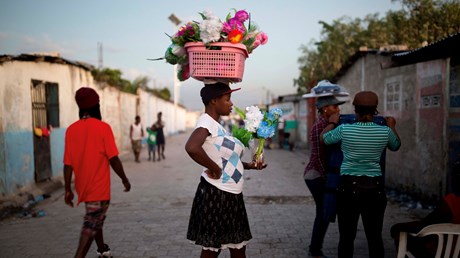What this Jamaican missionary loves about the island—and wishes more Western media and donors knew about it.

Haiti and Jamaica sit less than 350 miles apart from one another in the Caribbean Sea. But growing up in Kingston, Jamaica, Claudia Charlot learned little about her Creole-speaking neighbors until the man she later married came to her island to attend Bible school.
The two countries share tropical fruits, climate, and music—and the fact that their populations, like those of other Caribbean islands, are largely composed of people of African descent, says Charlot. Both have a similar Afrocentric culture, are former colonial islands, and have struggled for independence and with their people’s identity as descendants of former slaves.
Charlot made note of these similarities after she and her husband, Guenson, moved to Haiti after the 2010 earthquake. Arriving in 2011 with no job and little knowledge of French or Kreyòl (as Creole is known in the native language), Charlot opened a school to teach English to locals and ran it for five years. Today, she works as the dean of business at Emmaus University, and the Charlots live in a small community on the outskirts of Haiti’s second-largest city, Cap-Haïtien.
As Charlot has advised and worked with donors and investors over the years, she’s taken note of how often she’s had to correct negative stereotypes about Haiti. She completed her doctorate in 2021 on transformational leadership and turned her research into Haiti: The Black Sheep?, a book she wrote to help dispel the misconceptions about Haiti. “This country is rich in wisdom, values, and resilient people,” she says.
Global books editor Geeta Tupps spoke with Charlot concerning what the mainstream media got wrong about Haiti and the pandemic, her personal experience with Vodou, ...
Continue reading...
from Christianity Today Magazine
Umn ministry


.gif)

.gif)
.gif)
